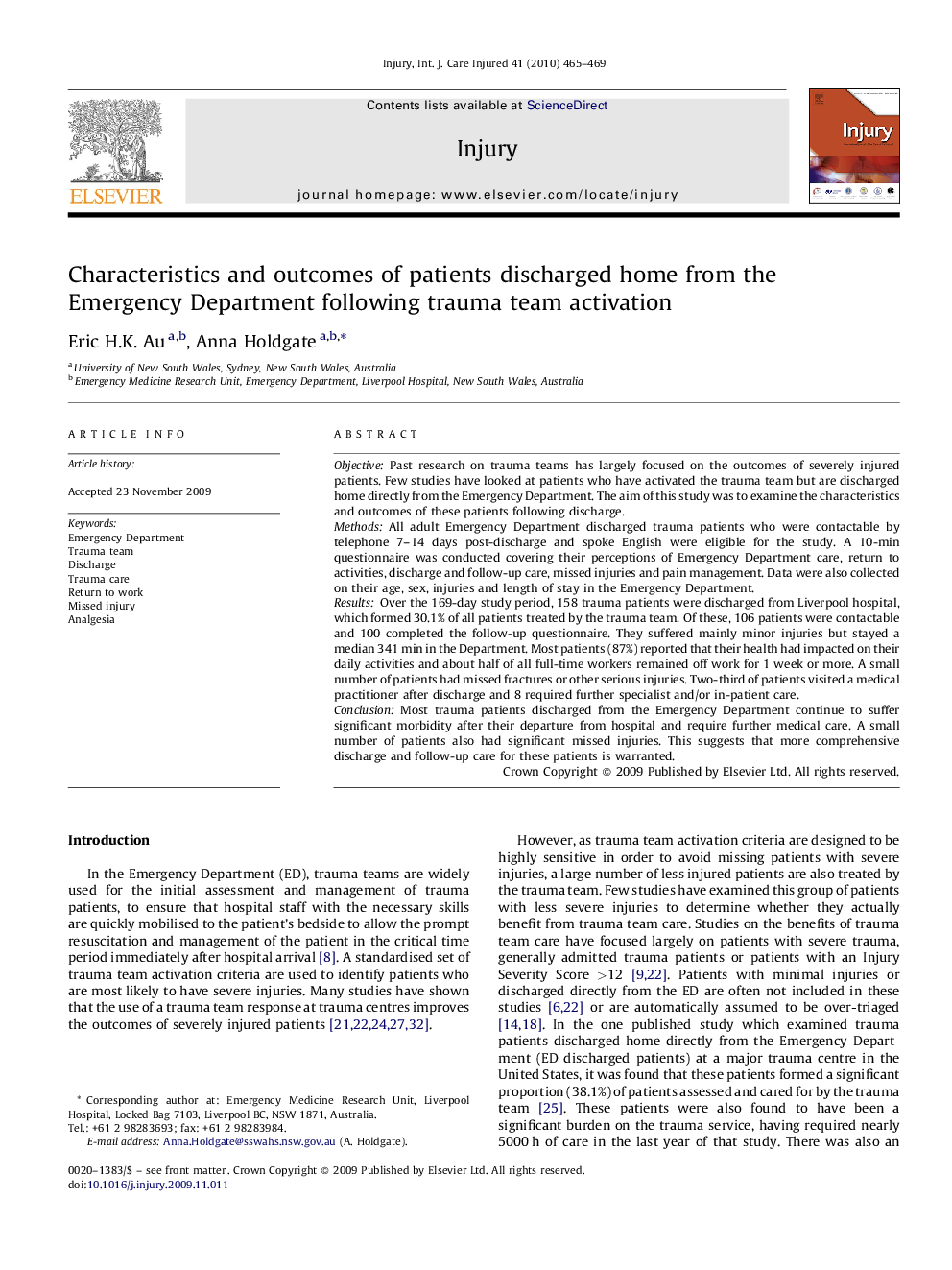| Article ID | Journal | Published Year | Pages | File Type |
|---|---|---|---|---|
| 3241456 | Injury | 2010 | 5 Pages |
ObjectivePast research on trauma teams has largely focused on the outcomes of severely injured patients. Few studies have looked at patients who have activated the trauma team but are discharged home directly from the Emergency Department. The aim of this study was to examine the characteristics and outcomes of these patients following discharge.MethodsAll adult Emergency Department discharged trauma patients who were contactable by telephone 7–14 days post-discharge and spoke English were eligible for the study. A 10-min questionnaire was conducted covering their perceptions of Emergency Department care, return to activities, discharge and follow-up care, missed injuries and pain management. Data were also collected on their age, sex, injuries and length of stay in the Emergency Department.ResultsOver the 169-day study period, 158 trauma patients were discharged from Liverpool hospital, which formed 30.1% of all patients treated by the trauma team. Of these, 106 patients were contactable and 100 completed the follow-up questionnaire. They suffered mainly minor injuries but stayed a median 341 min in the Department. Most patients (87%) reported that their health had impacted on their daily activities and about half of all full-time workers remained off work for 1 week or more. A small number of patients had missed fractures or other serious injuries. Two-third of patients visited a medical practitioner after discharge and 8 required further specialist and/or in-patient care.ConclusionMost trauma patients discharged from the Emergency Department continue to suffer significant morbidity after their departure from hospital and require further medical care. A small number of patients also had significant missed injuries. This suggests that more comprehensive discharge and follow-up care for these patients is warranted.
